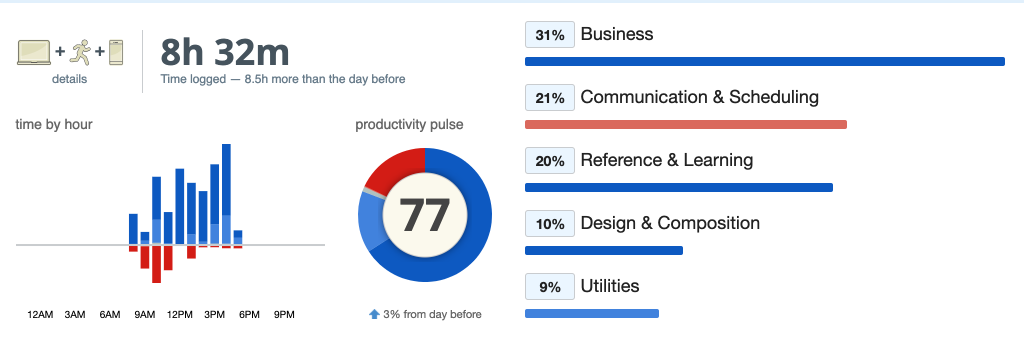
About
Now a days workforce and many businesses are facing disruptive challenges globally, its time to align ourself with available alternative options like working online (work from home)– a very popular option since longtime among software development professionals and their offshore teams, now more and more non-IT users and businesses are considerably thinking to switch or divide their day-to-day work among online and on-site teams. You left the universe of open-plan workplaces behind, found the work-from-home occupation you had always wanted, aced the meeting, and got the gig. Presently you need to convey. Working remotely has numerous advantages, however it takes commitment and brilliant systems to pull it off effectively.
I’ve worked remotely for a couple of years and I have numerous companions and associates who’ve done it, as well. We as a whole confronted various difficulties, since we have various characters, yet additionally because of our different ways of life and the sort of work we do. Regardless of telecommuters manage their interesting conditions, in any case, a considerable lot of the hidden issues they face are the equivalent.
Everybody who works remotely needs to make sense of when to work, where to work, and how to make limits between work life and individual life. Shouldn’t something be said about office gear, profession improvement and preparing openings, and building associations with partners? Working remotely, particularly when telecommuting more often than not, implies pondering these issues and others. Here are 20 hints dependent on my experience and what I’ve watched and gained from other online working professionals from different industries.
Some Tips
1. Maintain Regular Hours

Set a schedule, and stick to it…most of the time. Having clear guidelines for when to work and when to call it a day helps many remote workers maintain work-life balance. Working a swing shift is bad for you, and that applies to remote workers, too. That said, working remotely sometimes means extending your day or starting early to accommodate someone else’s time zone. When you do, be sure to wrap up earlier than usual or sleep in a bit the next morning. Installing an automatic time-tracking app, such as RescueTime, lets you check in on whether you’re sticking to your schedule.
2. Create a Morning Routine
Deciding you’ll sit down at your desk and start work at a certain time is one thing. Creating a routine that guides you into the chair is another. What in your morning routine delineates the start of work? It might be making a cup of coffee. It might be returning home after a jog. It might be getting dressed (wearing pajama pants to work is a perk for some, but a bad strategy for others). Create a morning routine that ends with you starting work.
3. Set Ground Rules With the People in Your Space
Set ground rules with other people in your home or who share your space for when you work. If you have children who come home from school while you’re still working, they need clear rules about what they can and cannot do during that time. Additionally, just because you’re home and can let service people into the house or take care of pets doesn’t mean other family members should assume you will always do it. If that’s how you choose to divide up the domestic labor, that’s fine, but if you simply take it all on by default, you may feel taken advantage of, and your productivity may suffer.
4. Schedule Breaks
Know your company’s policy on break times and take them. If you’re self-employed, give yourself adequate time during the day to walk away from the computer screen and phone. A lunch hour and two 15-minute breaks seems to be the standard for full-time US employees.

5. Take Breaks in Their Entirety
Don’t short-change yourself during breaks, especially your lunch hour. You can use an app, such as TimeOut for Mac and Smart Break for Windows, to lock yourself out of your computer for 60 minutes. Or you can just launch a simple clock or timer on the screen when you take a break. If you return to your desk after only 40 minutes, walk away for another 20.
6. Leave Home
You don’t have to eat out every day, but you should try to leave your home regularly (avoid public / over crowded places to avoid COVID-19 Transmission threat). The same advice applies to people who work in traditional office settings, too: Leave the building at least once a day. Your body needs to move. Plus, the fresh air and natural light will do you good. Talk a walk. Weed the garden. You get the picture.
7. Don’t Hesitate to Ask for What You Need
If you’re employed by a company or organization that supports your work-from-home setup, request the equipment you need as soon as you start working from home, or within a day or two when you realize you need something new. It’s extremely important to set precedents early that you will ask for what you need to get your job done comfortably, including the right monitor, keyboard, mouse, chair, printer, software, and so forth. Organizations that are accustomed to remote employees often have a budget for home office equipment. Ask what it is and how often it’s renewed. It also doesn’t hurt to ask whether there’s a loan agreement or who will pay for return shipping or disposal of outdated equipment.
8.Keep a Dedicated Office Space
In an ideal world, remote employees would have not only a dedicated office, but also two computers, one for work and one for personal use. It’s more secure for the employer, and it lets you do all your NSFW activities in private. But not everyone has a separate office in their home, and keeping two machines isn’t always realistic. Instead, dedicate a desk and some peripherals only for work use. For example, when your laptop is hooked up to the monitor and external keyboard, it’s work time. When it’s on your lap, that’s personal time. You may want to go as far as partitioning your hard drive and creating a separate user account for work, too.
9.Maintain a Separate Work Phone Number
Set up a phone number that you only use for calls with colleagues and clients. It doesn’t have to be a landline, second mobile phone, or even a SIM card. It can be a free VoIP service, such as a Google Voice. Similar to some of the other tips, having a separate phone number helps you manage your work-life balance.
10.Use a VPN
Use a VPN whenever you’re connected to a network that you don’t control. That includes Wi-Fi at co-working spaces, cafes, libraries, and airports. Some organizations have their own VPNs that off-site employees need for accessing certain servers or websites that store information meant only for internal use. In those cases, you’ll also need to use a VPN at home. In any case, it’s a good idea to get into the habit of leaving your VPN connected as often as possible because it’s always safer to have it on than not.
When you access the internet over Wi-Fi, do you worry about who might be spying on your data—or maybe even stealing it? If not, you’re in the majority, and that’s a real problem. Everyone ought to be using a virtual private network, or VPN, whenever they’re on a network they don’t control.
Even among net neutrality supporters—who you might think would be better informed on security and privacy issues—55 percent had never used a VPN.
11.Socialize With Colleagues
Loneliness, disconnect, and isolation are common problems in remote work life, especially for extroverts. Companies with a remote work culture usually offer ways to socialize. For example, they might have chat channels where remote employees can talk about common interests. It’s important to figure out how much interaction you need to feel connected and included – use regular phone calls, whatsapp video calls or IMO etc., objective is to feel connected and avoid loneliness feelings as much as possible specially if you are planning to work online for longer time.
Social Distancing: The Centers for Disease Control and Prevention has issued guidelines for “community mitigation strategies” to limit the spread of COVID-19, the disease caused by the coronavirus, which include recommendations for “social distancing”—a term that epidemiologists are using to refer to a conscious effort to reduce close contact between people and hopefully stymie community transmission of the virus.
12.”Show Up” to Meetings and Be Heard
Certainly, you’ll take part in video conferences and conference calls, but it’s a good idea to attend optional meetings sometimes, too. Be sure to speak up during the meeting so everyone knows you’re on the call. A simple, “Thanks, everyone. Bye!” at the close of a meeting will go a long way toward making your presence known.
13.Get Face Time
If your employer is lax about getting you in a room with other employees, ask to have an annual or semi-annual trip in your contract. It could be for annual planning, training, or team building. Or, tack it onto some other business event, such as a yearly fiscal meeting, nearby conference, or office holiday party. Don’t wait around for someone to invite you to the office or an event. Be proactive.
14.Take Sick Days
When you’re ill, take the sick time you need. If you have sick days as a benefit, they’re part of your compensation package. Not taking them when you need them is like throwing away money. If you’re a freelancer without sick days, it can be very easy to fall into the opposite time-is-money trap and try to power through illnesses. Any time that money allows, however, you may find that you’re more productive in the long run if you let your body rest when it’s unwell
15.Look for Training Opportunities
When you’re not in an office with your fellow employees, you might miss out on training and skills development courses that are taught in person. Your company might even forget to add you to its online training courses. While it might be tempting to regard this a dodged bullet, you might be missing out on an opportunity to learn something useful. You should bite that bullet and make sure you’re included. In addition to top-down training pushes, if there is a course you need for career development, ask if you can take it. Also, if you get enough advance notice of upcoming training that’s on site, it might be a good time to request a trip to headquarter.
Join FREE online workshops and online courses to best utilize your time and develop skills to meet with modern business challenges.
16.Overcommunicate
Working remotely requires you to overcommunicate. Tell everyone who needs to know about your schedule and availability often. When you finish a project or important task, say so. Overcommunicating doesn’t necessarily mean you have to write a five-paragraph essay to explain your every move, but it does mean repeating yourself. Joke about how you must have mentioned your upcoming vacation six times already, then mention it again.
17.Be Positive
I like succinct and clear messages, but I know that the less face time I have with people, the less they know how to interpret my tone. When you work remotely full-time, you must be positive, to the point where it may feel like you’re being overly positive. Otherwise, you risk sounding like a jerk. It’s unfortunate, but true. So embrace the exclamation point! Find your favorite emoji :D. You’re going to need them.

18. Take Advantage of Your Perks
Every week, I bake a loaf of bread. Why? Because I can, and I enjoy it. When I worked in an office full-time, it was a struggle to find the time to pop something into the oven that often. Working remotely comes with unique perks. Take advantage of them. You deserve it.
19.Don’t Be Too Hard on Yourself
The most successful remote employees have a reputation for being extremely disciplined. After all, it takes serious focus to get a full-time office job done from an unconventional space. That said, everyone lets their attention drift sometimes. If you find yourself working one minute and booking flights for your upcoming vacation the next, don’t reprimand yourself harshly. Instead, ask yourself whether people in an office setting do the same thing. If the answer is yes, cut yourself some slack, then get back to work.
20.End Your Day With a Routine
Just as you should start your day with a routine, create a habit that signals the close of the workday. It might be a sign off on a business messaging apps, an evening walk, or a 6 p.m. yoga class. You might have a simple routine such as shutting down your computer and turning on a favorite podcast. Whatever you choose, do it consistently to mark the end of working hours.
Caution: Read about Implementation of Mitigation Strategies for Communities with Local COVID-19 Transmission
Learn From Home (online classes)
Data Sciences with Python Machine Learning Online Course
Diploma in Digital Marketing – Online Course
Search Engine Optimization (SEO)
Oracle Fusion Cloud HCM/HR (online course)
Oracle Fusion Cloud Financials (online class)
SAP Success Factors – Human Capital Management
Graphic Design Course (All in One)
Pass Project Management Professional (PMP) Certification Exam
Ethical Hacking with Kali Linux (online course)





Leave a Reply